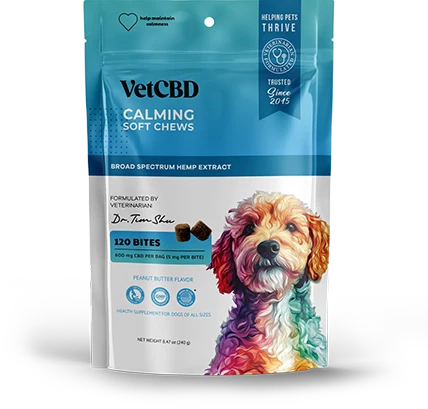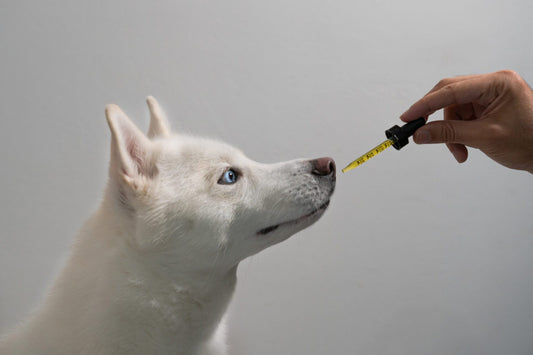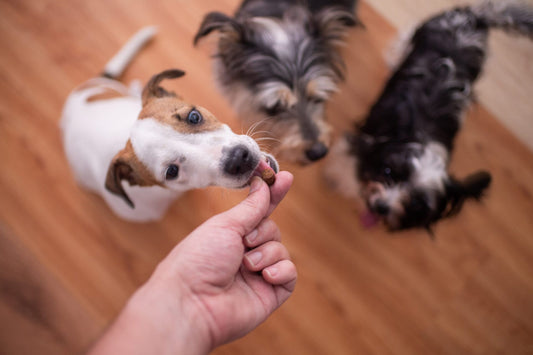At VetCBD, we’re committed to helping your pets live their longest, happiest, and healthiest lives. That’s why we want to bring attention to a growing concern we see far too often: pet obesity—and its surprising link to cancer.
The Hidden Connection Between Pet Obesity and Cancer Risk
We understand weight can be a sensitive subject, but learning about the risks is the first step toward better health for your furry companion.
Over Half of Pets Are Overweight—And It’s More Dangerous Than You Think
According to the Association for Pet Obesity Prevention, over 50% of dogs and cats in North America are overweight or obese. We typically associate extra weight with arthritis, diabetes, or heart problems—but there’s another risk that deserves attention: cancer.
How Obesity Increases Cancer Risk in Pets
Fat tissue isn’t just passive storage—it’s metabolically active. It produces hormones and inflammatory signals that can disrupt your pet’s internal balance. This chronic, low-grade inflammation is now recognized as a key contributor to several types of cancer in both people and pets.
In fact, studies in veterinary medicine are increasingly linking obesity with higher risks of mammary tumors, bladder cancer, and mast cell tumors in animals.
What Human Health Can Teach Us
In human medicine, the link between obesity and cancer is well documented. Conditions like breast, liver, pancreatic, and colorectal cancers are more common in people with excess weight. The same biological mechanisms—hormonal imbalances, chronic inflammation, and altered cell growth—are believed to play a similar role in pets.
Understanding these parallels reinforces just how important it is to keep our pets at a healthy weight.
Why Healthy Weight Matters So Much
A landmark study of Labrador retrievers found that dogs kept lean lived, on average, nearly two years longer than their overweight littermates. Not only did they live longer, but they also experienced a later onset of chronic disease. The takeaway? Weight control isn’t just cosmetic—it’s life-changing.
What You Can Do Starting Today
The good news? Pet obesity is manageable—and even reversible—with the right plan. Here are a few tips to get started:
-
Get a Body Condition Score (BCS): Unsure if your pet is overweight? Your vet can help assess their ideal weight.
-
Measure meals: Use a measuring cup to ensure you’re feeding accurate portions based on your pet’s ideal (not current) weight.
-
Cut down on treats: Treats should be no more than 10% of daily calories. Use part of their regular food as treats, or choose low-calorie options.
-
Pick the right diet: Prescription diets can help with weight loss while keeping your pet feeling full and nourished.
-
Increase exercise safely: Longer walks, interactive play, puzzle feeders, or low-impact activities like swimming can all help. Even indoor cats can benefit from laser pointers or feather wands.
-
Track progress: Regular weigh-ins help monitor results and allow for plan adjustments.
Invest in Your Pet’s Health Today
Imagine your pet feeling lighter, more playful, and more energized for adventures together. Achieving a healthy weight is one of the most powerful things you can do for their long-term health and happiness.
If you’re concerned about your pet’s weight—or just want to be proactive—schedule a consultation with your veterinarian. Together, you can create a personalized plan that puts your pet on the path to wellness.
Sources:
-
- 2023 Pet Obesity and Nutrition Survey: Pet Obesity Prevention¹
- Obesity, inflammation, and cancer in dogs: Review and perspectives: National Library of Medicine²
- First-Ever Study Proves Diet Restriction Can Add Nearly Two More Years Of Healthy Life for Canines: Purina News Center³











No comments